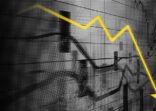On average, only 5% of Japan’s active fund managers investing in equities internationally managed to outperform their benchmarks over the past ten years, according to the latest SPIVA (S&P Indices Versus Active) report published by S&P Dow Jones Indices.
The breakdown for Japan’s active fund managers shows that a mere 12% of US equity-focused funds, 5% of global equity, 4% of emerging market equity and 2% of global ex-Japan equity funds outperformed their indices.
Turning to domestically-invested active funds, less than half — 39% — have managed to outperform their benchmarks over the past ten years.
SPIVA research analyses performance of active fund managers versus their benchmarks across ten geographic areas. The 2017 year-end report SPIVA Japan looked at 1,404 equity mutual funds domiciled in Japan, 780 of which were domestic and 624 international.
Under-performance factors
Priscilla Luk, head of global research and design at S&P Dow Jones Indices, identified three major factors behind the under-performance: Trading costs, foreign currency exposure and geographic allocation.
“If you operate in different markets, the trading cost is definitely higher,” she told FSA. This puts the managers of domestic funds, with their easier and cheaper market access, in a position to better control costs.
“In an international fund, you need to manage the geographic and sector allocation,” she said, which makes the task more challenging than that of a domestic fund manager. “You have to get these pillars right in order to outperform the market.”
Moreover, domestic equity fund managers don’t need to take into account currency fluctuations, while “managers who maintain international portfolios often need to take careful positions in currencies as well as taking on the interest rate risk”, she said.
These factors appear to be universal, according to Luk, as similar differences between domestic and international equity funds have been observed in other markets for which the analysis is done.
Nonetheless, 61% of domestically-invested active funds failed to beat their benchmarks over a decade, the study showed.
Among domestic equity funds, while more large-cap funds outperformed their benchmarks than med/small-cap ones, the latter delivered a higher average relative return, when equally weighted.
This supports the rationale that there are more alpha-generating opportunities in the mid/small-cap space because of more sparse research coverage.
However, on the asset-weighted basis, the difference reverses itself, meaning that larger funds focused on mid/small-caps have a harder time delivering alpha. Luk said that this was due to larger funds not being able to invest in the full universe of mid/small-cap stocks, as some smaller companies don’t offer sufficient liquidity.
The SPIVA report uses fund return data net of fees, sourced from Morningstar. It takes into account all funds available for sale at the beginning of the measurement period, thereby avoiding survivorship bias.
Active vs passive
The result appears to support the conclusion that most active fund managers don’t outperform their benchmarks in the long term, boosting the appeal of passive investments.
However, it is worth noting that while SPIVA compares the performance of active fund managers versus their benchmarks, it does not compare it to the performance of index-tracking products such as ETFs.
Passive investments are not designed to outperform the indices they track. In an earlier article, FSA compared seven China equity ETFs tracking the same index and found that over a three-year period, all of them under-performed the index, most by around 5.5%.
The best conclusion is that active funds are one avenue for fund investors to seek long-term market out-performance. But based on SPIVA data, which has also uncovered active fund under-performance in the US and Europe, only a minority of fund managers are able to deliver it.

















